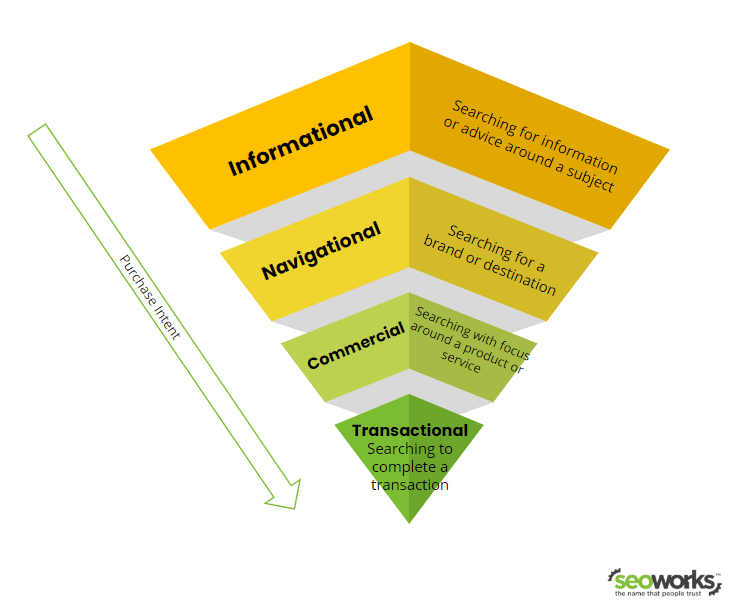ALL COUNTRIES:
August 13, 2020 @ 3:32 PM By Emily

Search intent is often one of the most overlooked ranking factors but arguably one of the most important. Have you ever had a page that seemingly has super useful content and is optimised for keywords, yet you still aren’t ranking?
The most likely culprit is search intent.
Our complete guide will teach you what search intent is, what the different types are, why it matters for SEO and most importantly, how to optimise for it.
Search intent, also sometimes known as user intent, refers to the meaning behind a search query; what is it the user is actually looking for by searching for that specific term?
It is essentially the goal of the user and could fall into a range of categories including informational, navigational, commercial or transactional. We will look at these in more detail a little later.

Search intent can often be inferred from the types of words used within search queries, for example if a search contains the word ‘how’, it is likely they are looking for information, or if the query contains the word ‘buy’, it is likely they are looking to make a purchase. By aligning your content to the users intent you can help to improve your rankings, and provide a relevant solution to the users query.
Briefly mentioned above, there are 4 main types of search intent. These are informational, navigational, transactional and commercial. Learn more about each of the different types of search intent.
With search engine algorithms improving by the day, keyword mentions are simply not enough anymore. Search engines are now able to determine the searchers intent much better than they used to. They then display content most relevant to that intent. Aligning your pages to this is therefore essential in order to gain high rankings. In doing this, your impressions will increase which in turn will help to boost traffic to your site.
Understanding and analysing search intent will influence your content creation, and ultimately help you answer the questions your target market are looking for, resulting in a better chance of search visibility.
Excerpts taken from this source.
About the author: